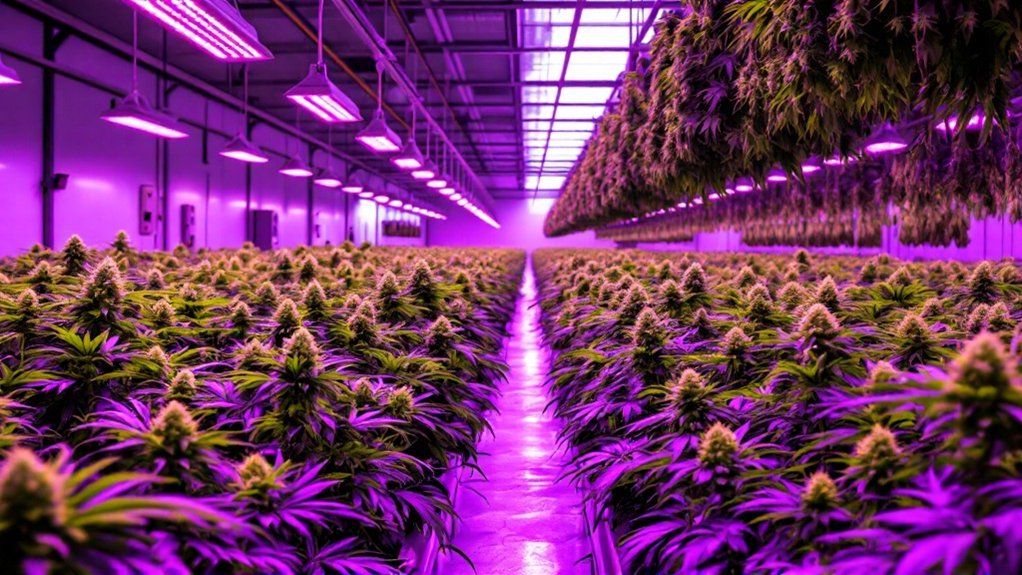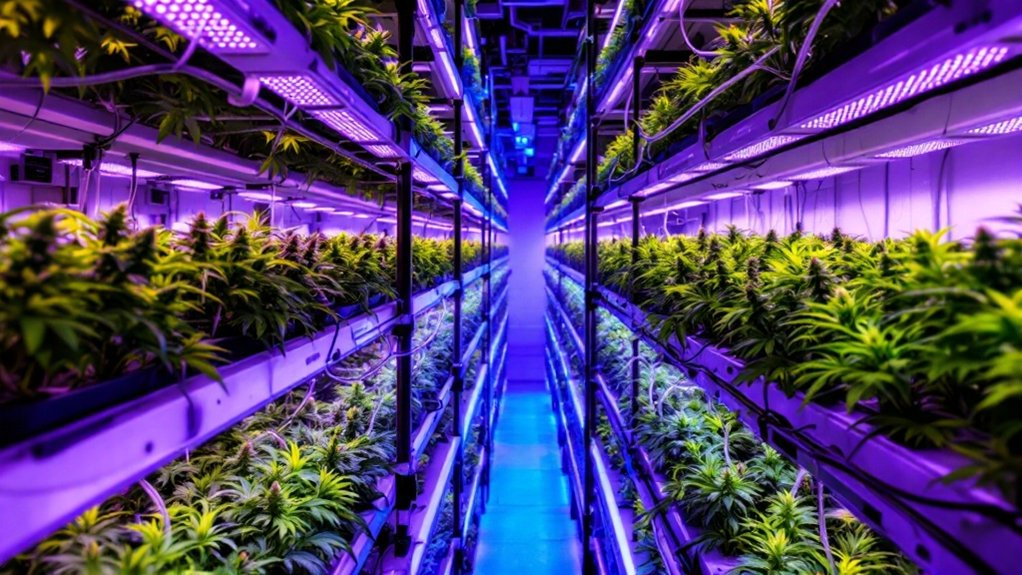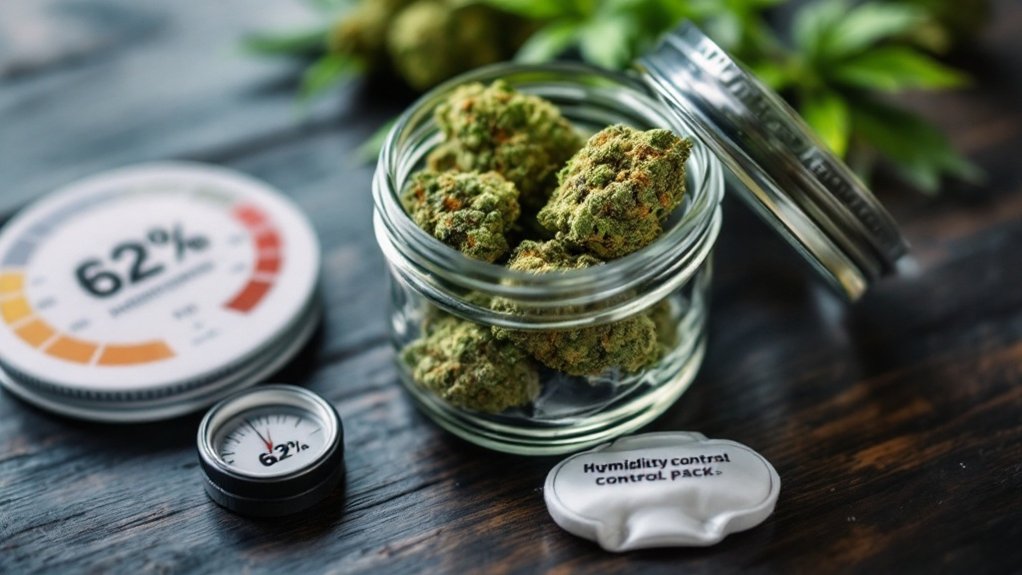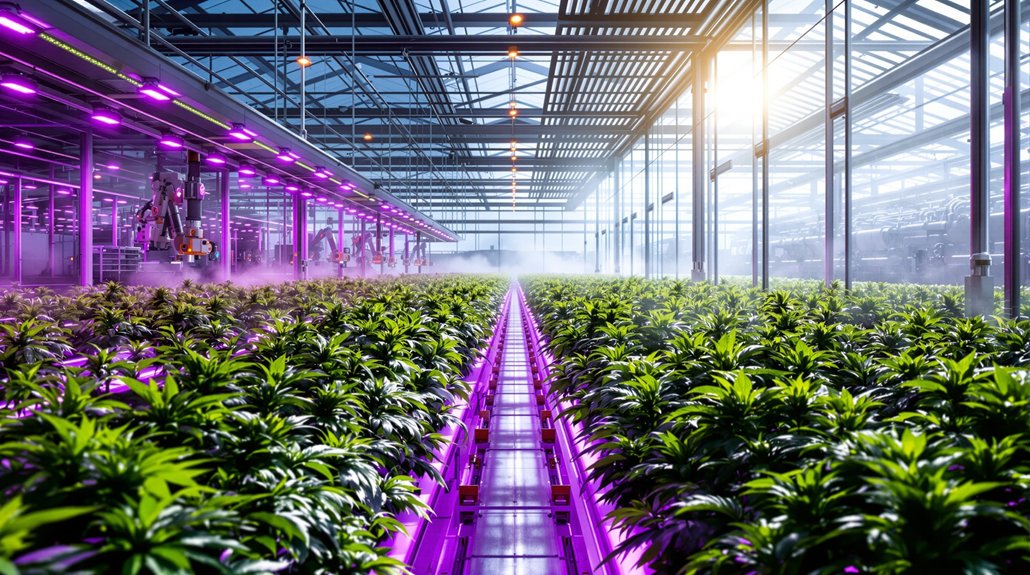The cannabis cultivation industry offers diverse career paths ranging from entry-level cultivation technicians to specialized management positions. Entry roles involve daily plant care including watering, feeding, pruning, and transplanting, with median salaries around $27,450. Career advancement leads to management positions overseeing operations and implementing strategic goals. Specialized opportunities exist in plant health management, pest control, breeding, and post-harvest processing. All positions require meticulous record-keeping for regulatory compliance and attention to environmental control systems. The industry continues to evolve with increasingly sophisticated cultivation techniques.
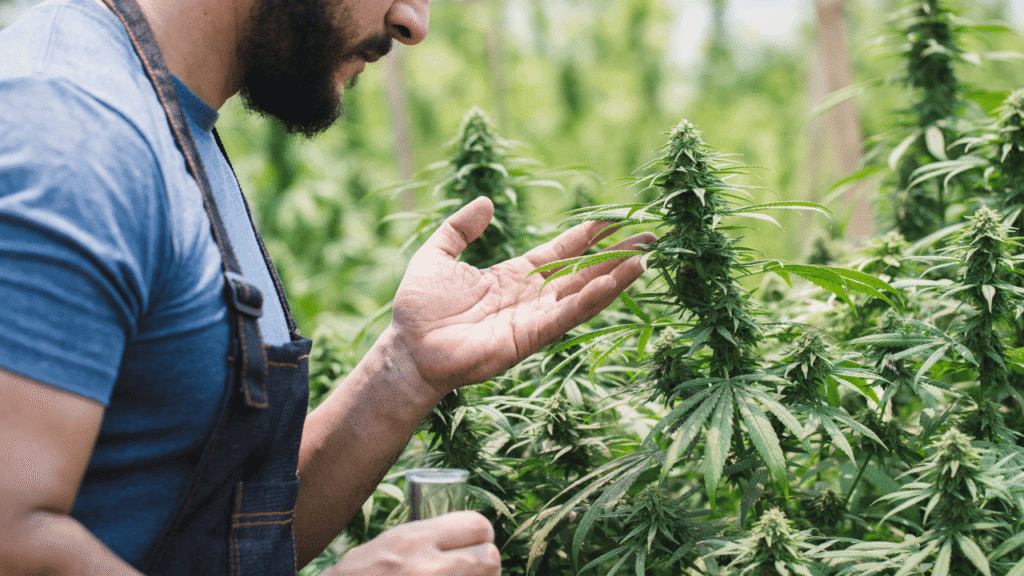
What does it take to build a career in the rapidly evolving cannabis cultivation industry? The foundation of this sector begins with entry-level cultivation technicians who perform essential daily care of marijuana plants throughout their lifecycle.
These professionals manage everything from planting to harvest, executing vital tasks such as watering, feeding, pruning, cloning, and transplanting plants under supervision of more experienced staff. They also assist with strain rotation to ensure production meets established variety and quality objectives. Additionally, they may work with living soil to enhance plant health and nutrient availability.
Cultivation technicians currently earn an average salary of between $40,000 and $50,000, reflecting a 4% increase from the previous year as the industry continues to mature. They monitor plant health indicators, soil conditions, and environmental control systems while maintaining detailed documentation of all plant movements and activities for regulatory compliance.
Accurate record-keeping forms a vital component of cannabis operations, as facilities must adhere to strict security protocols and government regulations.
The career path in cannabis cultivation often progresses toward management positions, where professionals oversee all cultivation operations and establish best practices. These roles require experience in the industry and involve designing standard operating procedures, implementing company goals, and creating extensive cultivation strategies. Directors of Cultivation and VP’s can potentially earn $200,000+ annually.
Success in cultivation management comes from experience, procedural excellence, and strategic vision.
Cultivation managers conduct internal audits to evaluate risks, test controls, and identify opportunities for operational improvements such as increased yield and reduced production costs.
Plant health management constitutes a specialized area within cultivation careers, focusing on maintaining ideal growing conditions including precise temperature, humidity, and CO2 levels.
These specialists identify and address threats to plants such as nutrient deficiencies, diseases, pest infestations, and mold while ensuring compliance with pesticide application regulations. Their work involves analyzing environmental data and implementing proper sanitation protocols.
The industry also offers highly specialized positions for experienced professionals. Breeders develop new cannabis strains with specific characteristics, while tissue culture technicians utilize laboratory techniques for plant propagation.
Integrated pest managers develop extensive strategies to control pests while minimizing chemical applications, earning an average salary of $75,800 that reflects the specialized nature of their expertise. Professionals with commercial greenhouse experience are particularly valued for their transferable knowledge of large-scale horticultural operations.
Facility management represents another vital aspect of cannabis farm jobs, encompassing maintenance of workspace cleanliness, equipment upkeep, and monitoring of irrigation systems.
Staff assist with harvesting and post-harvest processing activities including bucking, trimming, and drying while ensuring proper disposal of cannabis waste according to regulatory requirements.
Throughout these diverse roles, cultivation professionals receive mentorship and training, focusing on continuous learning and performance improvement in this technically demanding field.
Frequently Asked Questions
What Certifications Improve Hiring Chances at Cannabis Farms?
Professional cannabis cultivation certificates offered by industry organizations greatly enhance employment prospects at cannabis farms.
Academic credentials from community colleges and universities, such as Cannabis Production certificates and horticultural or botany degrees, demonstrate thorough knowledge of cultivation practices. These credentials cover essential aspects including botany, genetics, pest management, regulatory compliance, and agricultural safety.
With the cannabis industry experiencing sustained 27% growth, certified candidates possess the specialized knowledge employers seek when filling cultivation technician positions.
How Do State Cannabis Regulations Affect Employment Opportunities?
State cannabis regulations create significant variation in employment opportunities across the country.
States with adult-use legalization typically offer more cultivation jobs than those with restrictive medical-only programs. Licensing requirements, background check policies, and criminal record restrictions directly impact who can work in the industry.
Additionally, some states protect workers’ off-duty cannabis use, while others allow termination for positive tests. Local ordinances, supply caps, and vertical integration rules further shape the availability and diversity of cultivation positions.
Are There Seasonal Versus Year-Round Positions Available?
The cannabis cultivation industry features both seasonal and year-round employment options.
Seasonal positions mainly revolve around harvest and trimming activities, typically lasting 1-3 months and occurring most commonly in outdoor and Northern operations.
Year-round roles include master growers, cultivation managers, and compliance specialists, found chiefly in indoor facilities where continuous crop cycles are maintained.
Economic factors have recently pushed many operations toward increased seasonal staffing, though top-performing temporary workers often shift to permanent positions based on company needs and individual performance.
What Safety Risks Exist in Cannabis Cultivation Facilities?
Cannabis cultivation facilities present multiple occupational hazards.
Workers face respiratory risks from airborne allergens, molds, and plant particles, with documented cases of fatal asthma attacks in such environments.
Physical dangers include machinery injuries, electrical hazards, and ergonomic strain from repetitive motions during trimming and handling.
Environmental challenges such as high humidity and temperature create heat stress risks, while biological hazards emerge from exposure to microbial contaminants in soil and plant materials.
How Does Pay Compare to Traditional Agricultural Jobs?
Cannabis cultivation jobs generally offer higher wages than traditional farming positions. The average cannabis farm laborer earns approximately $16.97 per hour, while cultivation managers can earn around $22.36 hourly.
These rates exceed typical agricultural wages, which often hover near minimum wage levels. Regional variations exist, with established legal markets offering more competitive compensation packages.
Specialized roles requiring technical expertise, such as extraction technicians or cultivation directors, command premium salaries compared to general agricultural positions.
